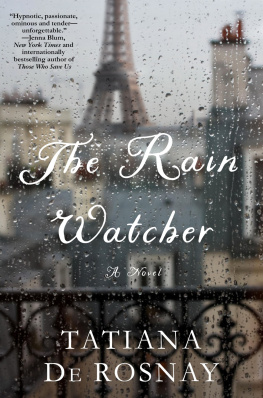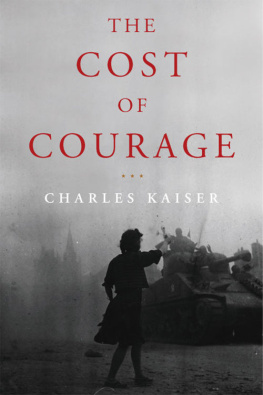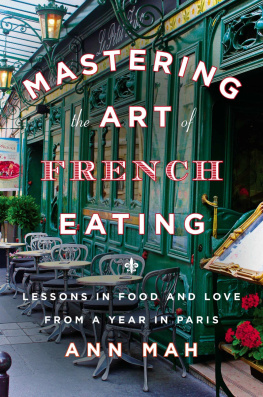
Sarah's Key


Sarah's Key

Tatiana de Rosnay

St. Martin's Press  New York
New York
This is a work of fiction. All of the characters, organizations, and events portrayed in this novel are either products of the author's imagination or are used fictitiously.
SARAH'S KEY. Copyright (c) 2007 by Tatiana de Rosnay. All rights reserved. Printed in the United States of America. No part of this book may be used or reproduced in any manner whatsoever without written permission except in the case of brief quotations embodied in critical articles or reviews. For information, address St. Martin's Press, 175 Fifth Avenue, New York, N.Y. 10010
www.stmartins.com
Nota bene: Pages 184 and 185 contain excerpts of Prime Minister Jean-Pierre Raffarin's speech during the 60th commemoration of the Vel' d'Hiv' roundup, on July 21, 2002.
Library of Congress Cataloging-in-Publication Data
Rosnay, Tatiana de, 1961
Sarah's key / Tatiana de Rosnay.--1st ed.
p. cm.
ISBN-13: 978-0-312-37083-1
ISBN-10: 0-312-37083-0
1. Jews--France--Fiction. 2. World War, 1939-1945--France--Anniversaries, etc.--Fiction. 3. Americans--France--Fiction. 4. Women authors--Fiction. 5. Family secrets--Fiction. 6. France--History--German occupation, 1940-1945--Fiction. 7. Paris (France)--Fiction.
PR9105.9.R66 S27 2007
823'.914--dc22
2006034536
First Edition: June 2007
10 9 8 7 6 5 4 3 2 1

To Stella, my mother
To my beautiful, rebellious Charlotte
In memory of Natacha, my grandmother (1914-2005)
 Author's Note
Author's Note 
The characters in this novel are entirely fictitious. But several of the events described are not, especially those that occurred in Occupied France during summer of 1942, and in particular the great Velodrome d'Hiver roundup, which took place on July 16, 1942, in the heart of Paris.
This is not a historical work and has no intention of being one. It is my tribute to the children of the Vel' d'Hiv'. The children who never came back. And the ones who survived to tell.

My God! What is this country doing to me? Because it has rejected me, let us consider it coldly, let us watch it lose its honor and its life.--IRENE NEMIROVSKY, Suite Francaise (1942)Tyger! Tyger! burning bright
In the forests of the night,
What immortal hand or eye
Could frame thy fearful symmetry?--WILLIAM BLAKE, Songs of Experience

Paris, July 1942
T
HE GIRL WAS THE first to hear the loud pounding on the door. Her room was closest to the entrance of the apartment. At first, dazed with sleep, she thought it was her father, coming up from his hiding place in the cellar. He'd forgotten his keys, and was impatient because nobody had heard his first, timid knock. But then came the voices, strong and brutal in the silence of the night. Nothing to do with her father. "Police! Open up! Now!"
The pounding took up again, louder. It echoed to the marrow of her bones. Her younger brother, asleep in the next bed, stirred. "Police! Open up! Open up!" What time was it? She peered through the curtains. It was still dark outside.
She was afraid. She remembered the recent, hushed conversations she had overheard, late at night, when her parents thought she was asleep. She had crept up to the living room door and she had listened and watched from a little crack through the panel. Her father's nervous voice. Her mother's anxious face. They spoke their native tongue, which the girl understood, although she was not as fluent as them. Her father had whispered that times ahead would be difficult. That they would have to be brave and very careful. He pronounced strange, unknown words: "camps," "roundup, a big roundup," "early morning arrests," and the girl wondered what all of it meant. Her father had murmured that only the men were in danger, not the women, not the children, and that he would hide in the cellar every night.
He had explained to the girl in the morning that it would be safer if he slept downstairs, for a little while. Till "things got safe." What "things," exactly? thought the girl. What was "safe"? When would things be "safe" again? She wanted to find out what he had meant by "camp" and "roundup," but she worried about admitting she had eavesdropped on her parents, several times. So she hadnot dared ask him.
"Open up! Police!"
Had the police found Papa in the cellar, she asked herself. Was that why they were here, had the police come to take Papa to the places he had mentioned during those hushed midnight talks: the "camps," far away, out of the city?
The girl padded fast on silent feet to her mother's room, down the corridor. Her mother awoke the minute she felt a hand on her shoulder.
"It's the police, Maman," the girl whispered. "They're banging on the door."
Her mother swept her legs from under the sheets, brushed her hair out of her eyes. The girl thought she looked tired, old, much older than her thirty years.
"Have they come to take Papa away?" pleaded the girl, her hands on her mother's arms. "Have they come for him?"
The mother did not answer. Again the loud voices down the hallway. The mother swiftly put a dressing gown over her night dress, then took the girl by the hand and went to the door. Her hand was hot and clammy, like a child's, the girl thought.
"Yes?" the mother said timidly, without opening the latch.
A man's voice. He shouted her name.
"Yes, Monsieur, that is me," she answered. Her accent came out strong, almost harsh.
"Open up. Immediately. Police."
The mother put a hand to her throat and the girl noticed how pale she was. She seemed drained, frozen. As if she could no longer move. The girl had never seen such fear on her mother's face. She felt her mouth go dry with anguish.
The men banged again. The mother opened the door with clumsy, trembling fingers. The girl winced, expecting to see green-gray suits.
Two men stood there. One was a policeman, wearing his dark blue knee-length cape and a high, round cap. The other man wore a beige raincoat. He had a list in his hand. Once again, he said the woman's name. And the father's name. He spoke perfect French. Then we are safe, thought the girl. If they are French, and not German, we are not in danger. If they are French, they will not harm us.
The mother pulled her daughter close to her. The girl could feel the woman's heart beating through her dressing gown. She wanted to push her mother away. She wanted her mother to stand up straight and look at the men boldly, to stop cowering, to prevent her heart from beating like that, like a frightened animal's. She wanted her mother to be brave.
"My husband is... not here," stuttered the mother. "I don't know where he is. I don't know."
The man with the beige raincoat shoved his way into the apartment.
Next page












 New York
New York Author's Note
Author's Note 